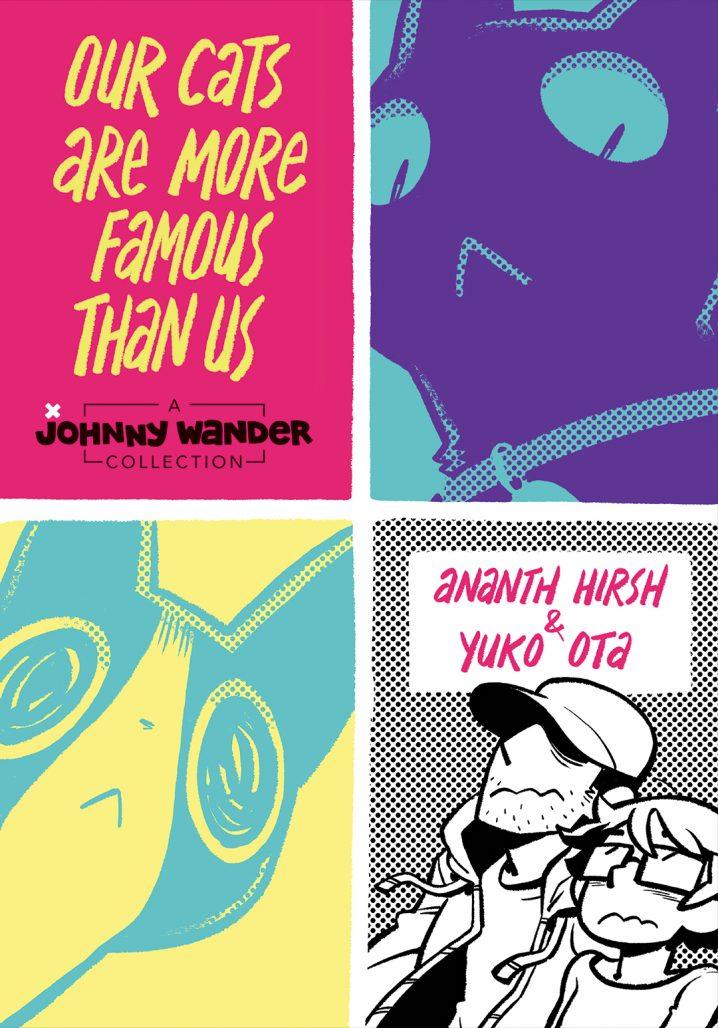
If this sounds like a bit of an academic take on the book, that’s because it totally is. But what I mean when I talk about Our Cats in this way is that the book is powerful. It’s the story of two cartoonists who simultaneously inculcate a feeling of intimacy with their readers while pushing huge elements of their lives– such as their romantic relationship– into the background. It’s a story about the dissonance between the way we see ourselves and the way the world perceives us. It’s a story about culture, cartoons, and some really cute cats.
Recently, the Comics Beat sat down with Ananth and Yuko to shed more light on their story.
Alex Lu: When the two of you started doing autobiographical comics, did you intend create them for public consumption?
Yuko Ota: Yeah, we definitely did. That’s the reason why they are all kind of at arm’s length [emotionally]; they were always meant to be more consumable. We’ve never been super interested in talking about our lives in-depth.
Ananth Hirsh: I think it’s easier for us to explore personal stuff through a fictional lens (rather than autobio). When it’s you on the page, it takes a certain level of courage to say something specific… I really admire people who put themselves out there in their autobio comics.
Lu: Were there any topics you particularly enjoyed exploring?
Ota: Every once in awhile we wound up breaking from cute anecdotal stuff and did talk about cultural family stuff. That was always fun because it would be a break from our routine.
Hirsh: Yeah! Yuko is the artist, and it’s really fun to see how she depicts things like Japanese New Year’s traditions or Diwali.
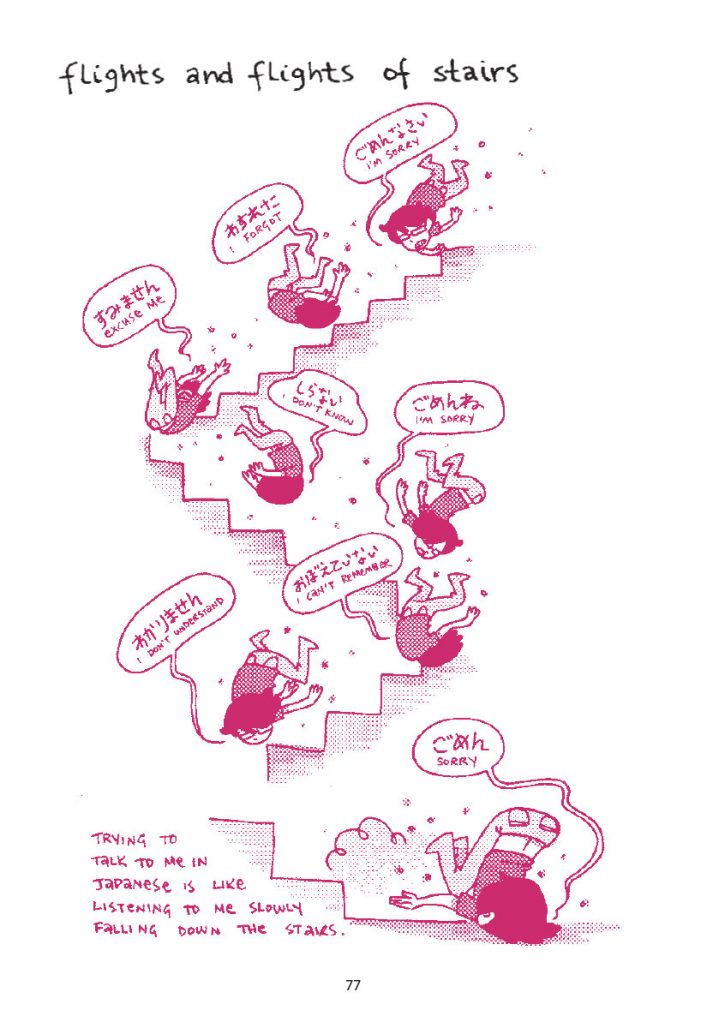
Ota: My relationship with Japanese culture is weird because it has changed drastically because of anime. When I was a kid in school, Japan was exclusively known as that weird country where they eat raw fish. Then, people suddenly started watching Dragon Ball Z and my culture became a commodity. It happened really fast and caused this incredible whiplash. Now, a lot of friends know more about Japan and Japanese culture than I do and it’s very strange. My relationship with my cultural identity has really changed a lot since then.
Hirsh: Over the last few years you’ve basically gone back with your dad once a year. Do you feel like that’s reconnected you a little bit?
Ota: I think it’s definitely reconnected me more with my dad than with my culture. I think that when I was younger, a lot of people were more willing to forgive me for being this weird buffoon trying to speak Japanese, but now I’m an adult. I think that my fumbling has lost its charm so people are less forgiving.
Hirsh: Our wedding was in India and it had been a couple years since the last time I was there. I felt much the same way about Hindi as you did about Japanese and I frequently thought about that comic; it definitely felt like I was falling down stairs. The Hindi is all there in my head– it’s always been ingrained. Sometimes I’ll dream in Hindi too. In the past I would think to myself that I just need two weeks of immersion to speak fluently again. However, going back I became really aware of how people put emphasis on different parts of words, different intonations, stuff like that. I felt more like a child speaking the language this time.
My relationship with Indian culture is….I think that it’s good at a familial level. Like, when I ask my parents questions about [Indian] history they’re quick to give me the cultural springboard I need to find the information I’m looking for. And my cousins are great, they’ve always been very welcoming even though my visits have become infrequent. But I think at a larger culture level, understanding how things connect in India….I just try to be observant.
Yuko talked about culture as commodity and Indian pop hasn’t penetrated the nerd mainstream the way Japanese pop has. The average nerd is definitely not eating it up.
Ota: Sorry.
Hirsh: Oh it’s fine! It’s a matter of time. The thing that stands out to me is that stuff like anime and Akira Kurosawa movies got imported to the U.S. and got to speak for themselves somewhat. Non-Indian people weren’t going to the Indian grocery and renting bollywood films. Most people my age growing up got their first impressions of Indian people from Apu on The Simpsons. I hated Apu so much. I realize now that I shouldn’t have, because it’s not like Apu couldn’t be a real person. What I hated was the way that the show made fun of him– he was a curiosity, a buffoon framed entirely from an outsider’s point of view. People are people; the context we put them in can frame them sympathetically, or turn them into an object of ridicule.
Anyway! Growing up I think I felt trapped between Apu and the model minority. Comics clicked with me immediately but I was always questioning my place there because being creative didn’t fit the template, and extending that I didn’t see any Indians in comics.
Ota: Now our general goal is to make material where we can see ourselves reflected in it.
Hirsh: Yeah. We had this big discussion between the two of us after reading Bryan Lee O’Malley’s response to a fan, where he talked about what it was like seeing the Scott Pilgrim movie and feeling that he had kind of erased himself from his own narrative. Our latest project, Barbarous, takes a lot of our discussion into account.
Lu: I get the sentiment, though. When I design characters for my own stories I tend to think about them as white unless there’s a particular element of their background that means they shouldn’t be. That doesn’t make any sense when you unpack it.
Hirsh: I hear it said a lot that if you grow up not being white, you get really good at impressing yourself onto other characters no matter what they look like. I think a less talked about part of that is that when you go to make stories, you can forget to include yourself.
My brother and I were obsessed with the Teenage Mutant Ninja Turtles. I wonder if I identified so much with them because they didn’t look like me, but didn’t look like anyone else, either? I have no answer to that.
Lu: As a kid, I never learned to speak Chinese particularly well. We never had much family in America. I didn’t see much of myself in media either, so by and large I didn’t identify with the Chinese side of my heritage. One way that I definitely did, though, was through the food. Chinese food was really, really good. Did either of you ever identify with part of your culture through food in that way?
Ota: I grew up in the middle of New Jersey and there were never any Japanese restaurants or Asian markets around me. Now though, food is the strongest way that I’m able to identify with my culture. I learned to cook with my dad and 60-70% of the food I make is Japanese. I feel most connected to my family when I cook.
It doesn’t really help that my dad has been really bad at imparting Japanese culture to me. The only thing my dad has ever been interested in doing is celebrating New Year’s where you make specific foods with specific meanings. We never do any other Japanese holidays. I don’t think he even knows my birthday (Dad, don’t read this interview). The one thing that he does every single year is cooking for New Year’s, so every single year I ditch all of my friends to hang out with my dad. I’ll go to bed at 11:30PM on New Year’s Eve and fall asleep watching anime.
Hirsh: So here’s the thing: Indian food puts me to sleep. I really like it but I had to put the brakes on after I left my parents’ house. At home, my mom would really lighten up the food– less ghee, less oil. Indian food from a restaurant doesn’t taste like it does at home! They use so much cream! I still enjoy it once in a blue moon, but the thing I’ll drop everything for is Indian street food. Chaat is one of my favorite things.
Lu: How did the two of you meet?
Hirsh: Haha… we met in 2004 at Anime Boston.
Ota: Yeah, we were both guests. This was during the first webcomics boom and we were both in college. For some reason, we were both given invitations by the convention! Webcomics have grown a lot since then, but this was back when there were like 30 people doing webcomics on the entire internet and we were a total novelty.
Lu: What was it that got you both into webcomics so early in the game?
Ota: I started doing my first webcomic back in 1999 or 2000. I think I was like 15 years old and I’m pretty sure it was the reason why I got into college. I wrote my application essay about how I didn’t hang out with my friends on the weekends because I was too busy drawing comics.
As a kid I really only drew furries and dragons– I wanted to draw people but never had the initiative to do it. So in high school, I decided to make a comic about human characters to force myself to draw humans. I’m not sure where it came from, I didn’t have a lot of access to comics. A friend got me a few volumes of Sandman and I was reading some manga– and this was before the manga boom so it was really hard to get manga in English– but I had Pokemon comics and a few books of the translated Star Wars manga.
At some point I discovered Jen Wang’s old comic online, and that was huge for me. My mom was a computer teacher, so I was the only person I knew who had access to a consumer grade scanner at the time. Basically, I wanted to put a comic online so I could be cool like Jen Wang and I had the means to do it. I wasn’t super aware of the concept of webcomics, I don’t even know if that word existed back then.
Hirsh: SPX was my childhood show. I encountered it around the same time that I discovered manga, and it sort of blew my world wide open as to what comics could be. And then one of the kids in my high school, Jonah, organized a comics zine club before I even knew what a zine was. I submitted work to that. And I was always drawing comics at home, comics that I showed like… two people.
I always say to Yuko that if she was part of Gen 1 of webcomics, I was probably Gen 1.5. I didn’t start posting comics online till college, first with a couple of high school friends, but it didn’t really become a thing until I met Mohammad F. Haque in one of my art classes. We worked together for a number of years and did it in addition to our full-time jobs, and that experience really helped me learn structure in this particular space. We were figuring everything out.
Yuko and I began collaborating in 2008. We started dating after that. Everyone was screaming at us like, don’t work with who you’re dating! But it has definitely made everything easier instead of more difficult.
Ota: Yeah, we were friends for like four years before we started dating. Then we dated for like forever. We got married just over a year ago.
Lu: Congratulations! One of the really interesting things about Our Cats Are More Famous than Us is that sort of non-specific feeling your relationship has. I wasn’t really sure that the two of you were a couple until the marriage proposal at the very end!
Hirsh: Oh thanks! When we first started writing our webcomic we set up some guidelines, and one of them was to keep the relationship stuff out of it. We meant it to be a comic about hanging out with your friends.
Ota: I remember it was a really big deal when in the third volume I drew a panel where the two of us were sleeping in bed next to each other. Doing that was a huge mental hurdle for us!
Lu: By nature, autobiographical comics have that certain degree of intimacy though. How did you go about striking a balance between keeping people at arm’s length while also beckoning them into your lives?
Ota: In a way, that sort of intimacy is going to happen no matter what. When we make these comics, we are basically creating a one-sided friendship between ourselves and our readers. It’s really great, but it also creates situations where people know a lot about us, but we don’t know a lot about them.
Hirsh: That said, some of the one-sided friendships became two-sided, too. One of our readers is now one of our best friends! As far as striking a balance, we wanted to make a comic that reminded you of your friends. We put a lot of thought into how to turn a funny moment between the two of us into a funny moment that didn’t require a lot of prerequisite knowledge for a reader.
Lu: What is the collaborative process between the two of you generally like?
Ota: The two of us are less like a writer-artist team and more like co-creators in everything we do. We have been working together for about nine years now. That’s a long time!
Hirsh: If we’re planning a story, we’ll sit down together and talk about what we want to accomplish. I take notes and write an outline. Then I’ll come back to Yuko with that and we’ll go over it, going back and forth to create a fresh outline that then goes to script. We’ll repeat the process with that script and then with the thumbnails as well. It’s pretty much a back and forth until the page is finished.
The process is pretty involved I guess. We go with the writer-artist titles because it fits into the publisher apparatus and helps readers understand what’s going on at a glance.
Lu: On a structural level, how are the chapters in this collection delineated?
Ota: This book doesn’t really have chapters– they’re more like book breaks. When we started doing the Johnny Wander stuff we wanted to do about one book per year, which we self-published and sold through our website. We did three of those collections in black and white, but for the omnibus we gave each volume a color. Each of those volumes are split up by what looks like a children’s poem from a found book, but the poems were actually written by me! For the Kickstarter special edition of Our Cats are More Famous than Us, we included a slip case with a design that was based around the poems, too.
Lu: I was wondering about the poems! I tried Googling them earlier but I couldn’t come up with a source.
Ota: That’s awesome, yeah, this is the first time I’ve publicly mentioned that I wrote them. I think most people do assume that they were just found in a bargain bin at a used bookstore!
Honestly, I can’t even remember why we started writing the poems. We did them the first time and then thought, “well I guess we’ll just keep on doing this.” I don’t go out of my way to read or write poetry. If somebody puts a poem in front of me and says that they think I’ll enjoy it, I’ll read it and thank them. However, I won’t go out of my way to buy a book of poetry.
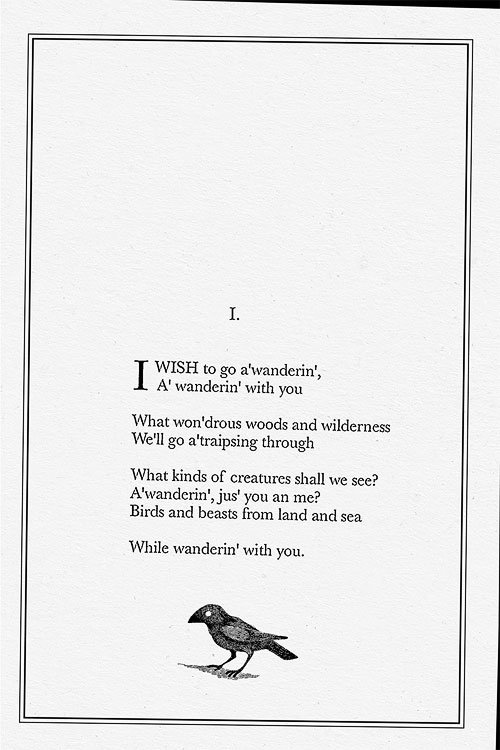
Ota: The poems are supposed to be a narrative. You string all the poems together and they tell a story about two children walking through a forest making up stories about the things that they see. The second poem is about this, like, terrifyingly huge man. And below it there’s a picture of Odin, but the poem is actually just describing a tree. In the third poem they’re talking about coming across the world snake, but they’re actually talking about a river. In the very last one they go home and they’re talking about this beautiful woman in the sky, but it’s actually just the milky way.
Hirsh: I think what happened was we did the first one and we were getting ready to put the second book together when we self-published it and then we were like uh…we need a poem at the beginning of this so it matches the first one. And then after that the narrative started to come together.
Ota: It played into the theme of the term Johnny Wander. That was always supposed to be an umbrella that we put over everything that we made on this website. We named it Johnny Wander so we would be able to meander around to whatever project we felt like doing. We would do all sorts of short stories, these autobio comics, and now we’re doing Barbarous. Johnny Wander is just the two of us doing whatever we feel like.
Our Cats are More Famous Than Us: A Johnny Wander Collection is on store shelves now!


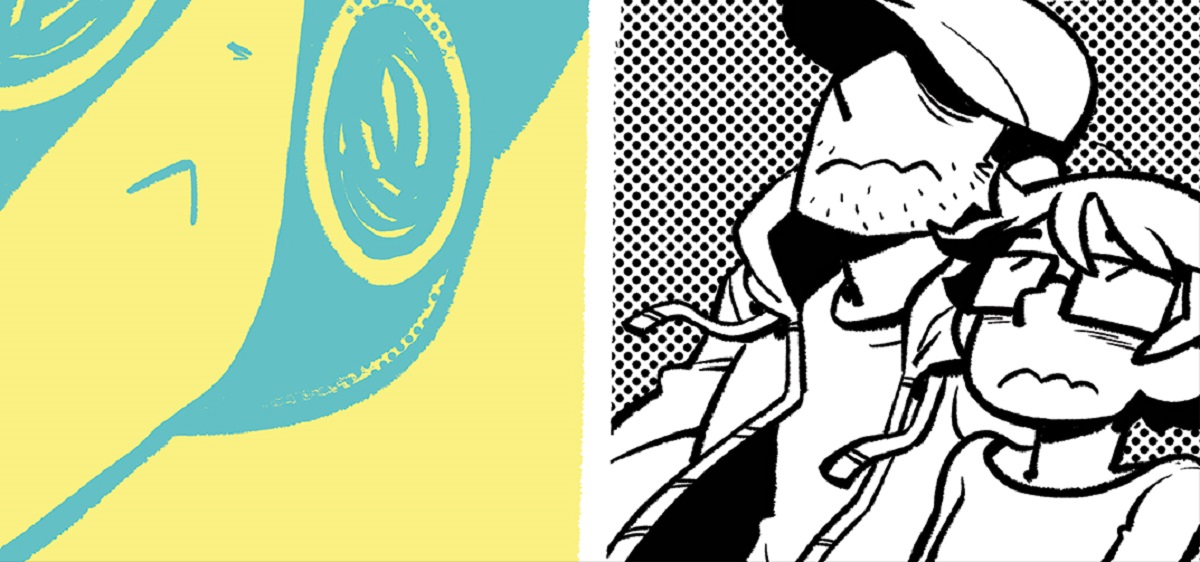
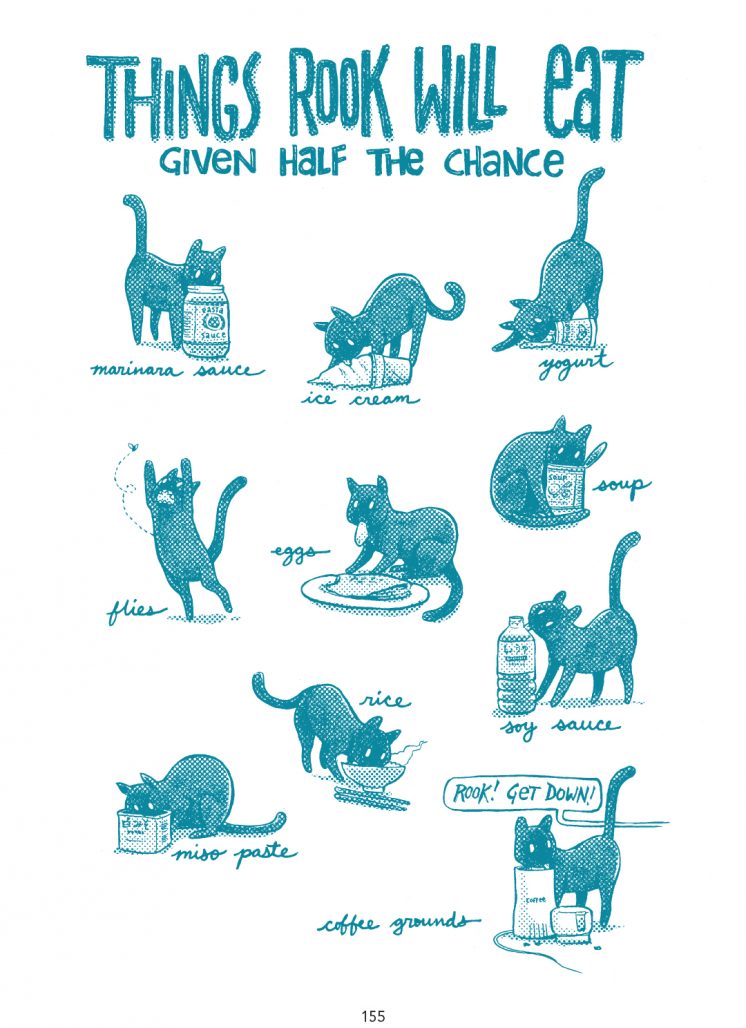
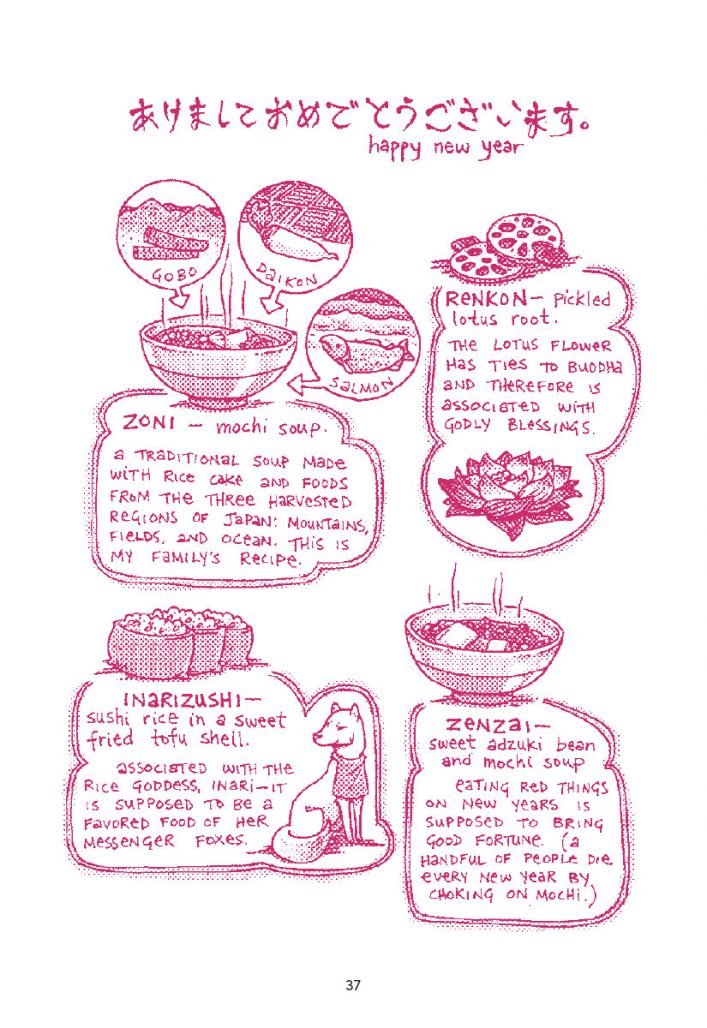
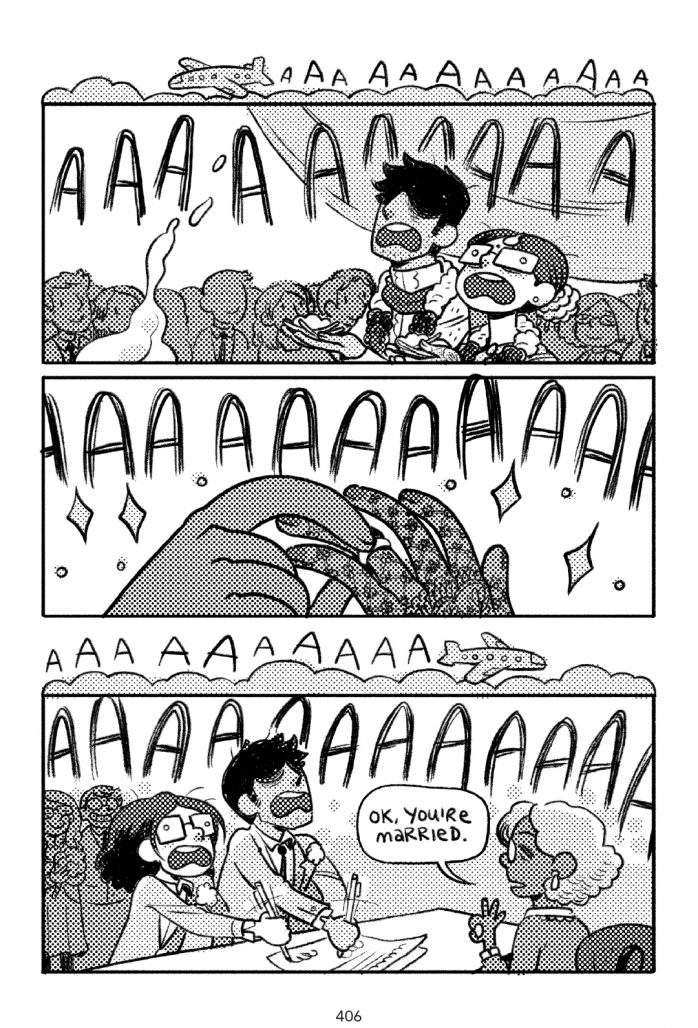
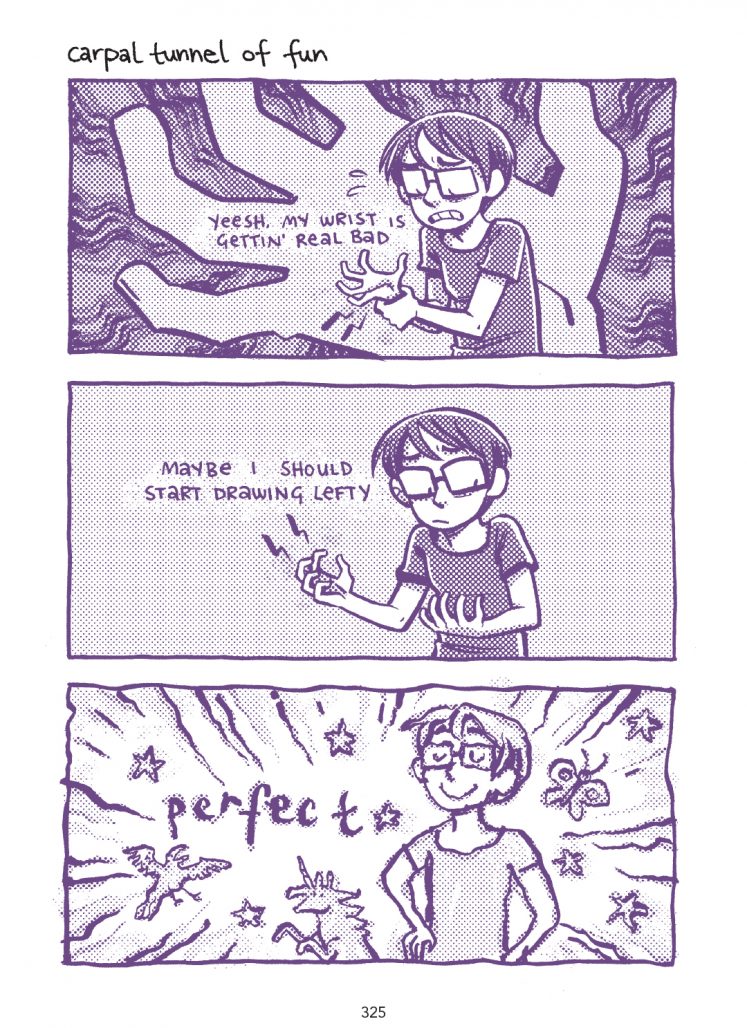
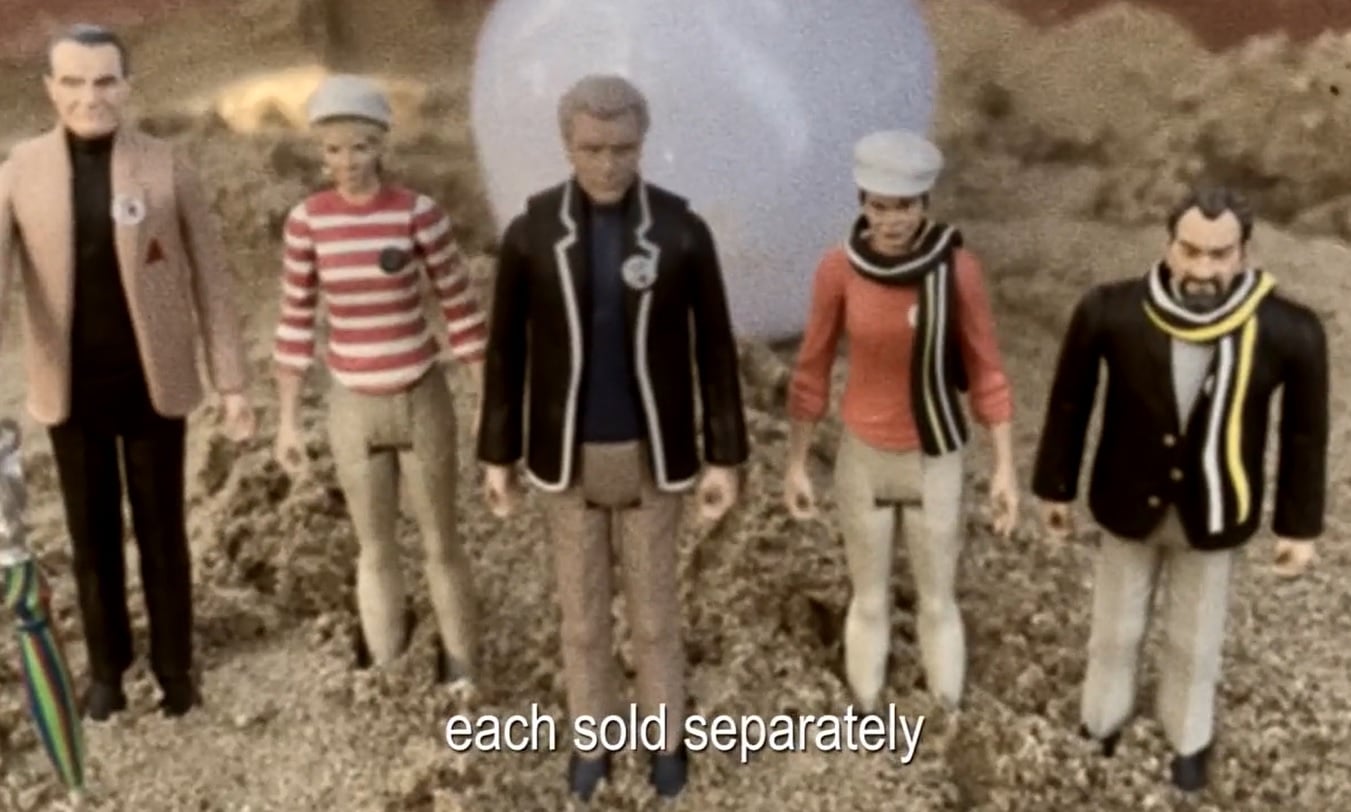
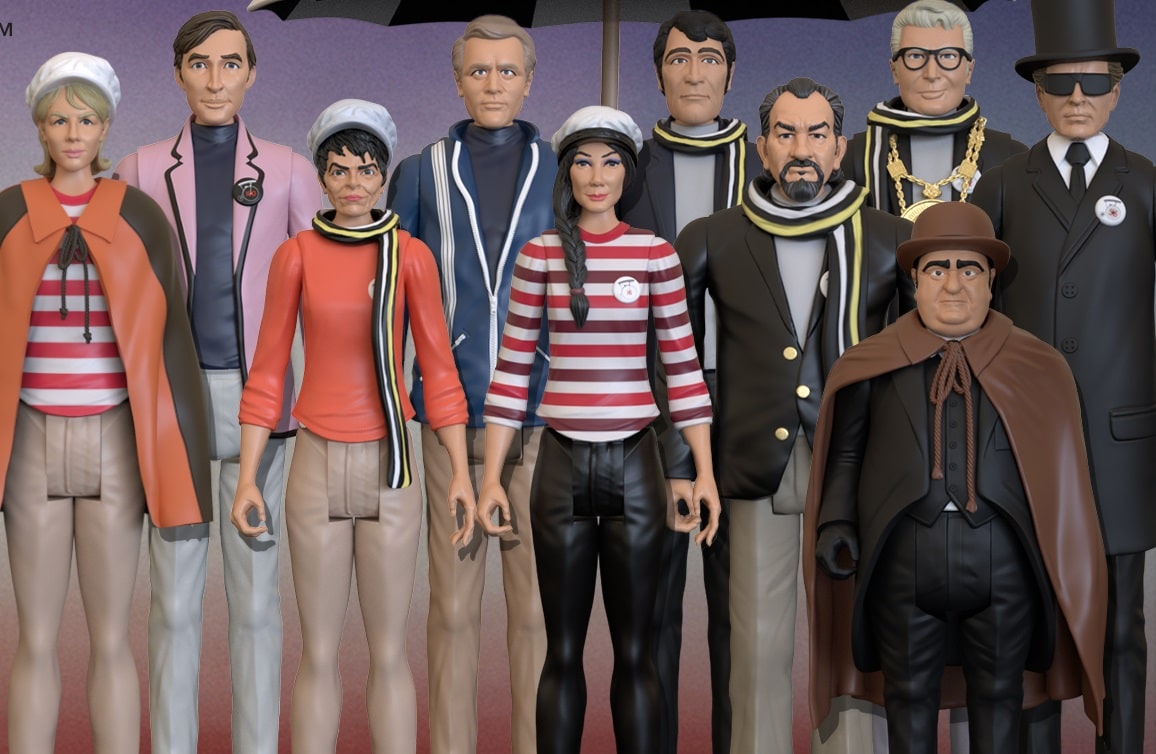

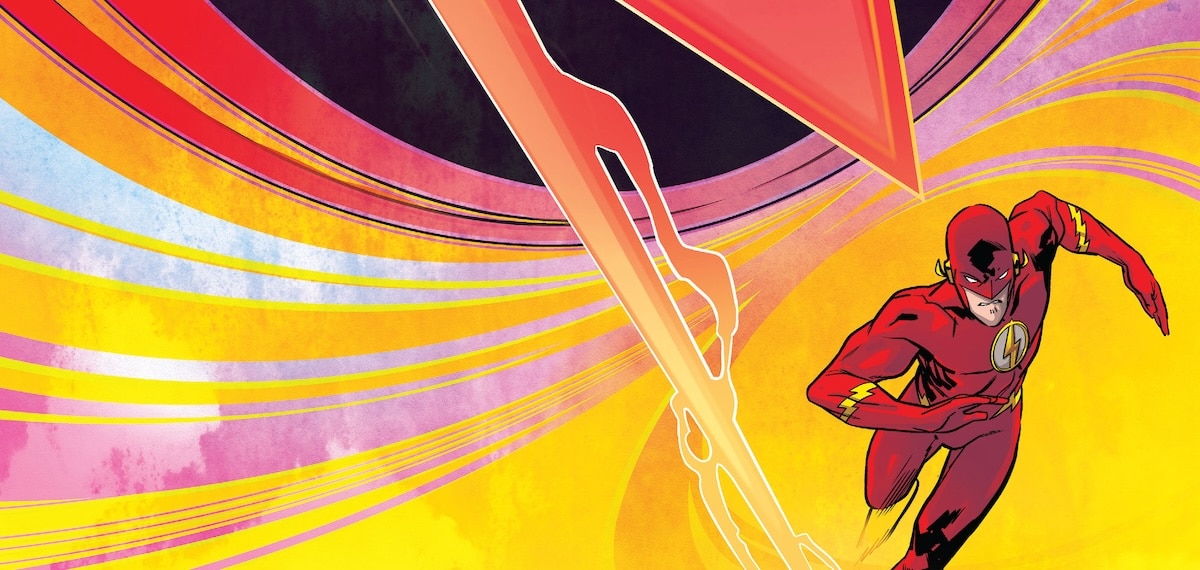

I have enjoyed the work of you guys for years and this was an awesome interview. Thank you for sharing your world.
Comments are closed.